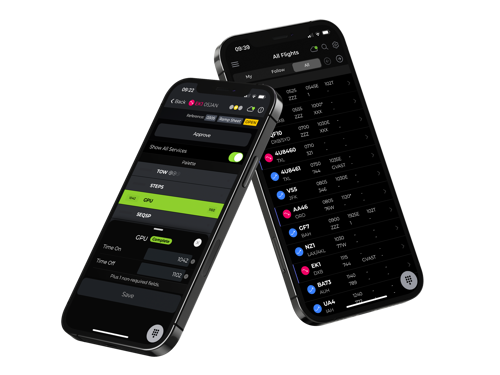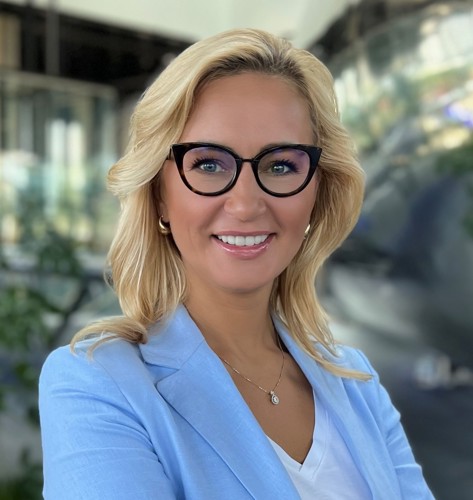
Picture credit: Jess Rodriguez @ stock.adobe.com
It’s hard to believe in today’s era of high tech that many ground handlers, especially the smaller regional ones, still rely on manual billing systems to invoice airlines for their contracts and services.
Often resistance to change and adoption of digital processes is part of the reasoning, but by failing to implement billing automation, companies open themselves up to significant revenue losses and awkward payment and contract disputes with airlines.
Luckily, since the pandemic some of these smaller handlers are embracing digitalisation and seeing the benefits of e-billing making operations more efficient and seamless thanks to their larger counterparts paving the way.
Swissport, for example, has been pioneering the rollout of e-invoicing, powered by Damarel’s FiNDnet Billing, and IATA Clearing House (ICH) settlement for both cargo and ground handling services since 2021, with feedback from customers overwhelmingly pleased with the results.
“In addition to an increased cost control, customers tell us that it allows them to achieve reductions in average invoice handling times of more than 90% compared to traditional PDF invoicing and manual payments,” said Mark West, Global Finance Transformation Lead, Swissport International.
“What does this mean in real terms? Significant productivity improvements as the time it takes their accounts payable teams to process, review, validate and settle an invoice tumbles from a minimum of 25 minutes per PDF invoice to just one minute for an e-invoice. With many customers receiving thousands of invoices per year, the savings are definitely worthwhile. Thanks to our collaboration with Damarel and the use of FiNDnet Billing, Swissport is now able to offer this added value opportunity to our customers at scale, with 28 Swissport businesses across 15 countries already provisioned for the emission of e-invoicing, and more on the way in 2024.”
FiNDnet Billing drives the invoicing for more than 200 stations around the world, for handlers of any size, processing millions of flights and billions of dollars’ worth of revenue every year.
“We see huge growth in this area, with handlers and airlines both recognising the benefits,” said John Boult, Managing Director at Damarel.
“At Damarel, automation isn’t just a buzzword, it’s our mission – and automated billing for ground services is a great example. It’s a true win-win solution for ground handlers and airlines and quickly becoming the standard.”
 FiNDnet Mobile: A multi-purpose solution
FiNDnet Mobile: A multi-purpose solution
Damarel is a key part in driving this revolution with its FiNDnet Billing software, continually working with the team at Swissport and IATA and its Simplified Invoicing and Settlement (SIS), a single standard called IS-XML that facilitates the exchange of e-invoices helping suppliers to use one standard for all customers and ICH, a powerful netting solution for airlines and suppliers to reduce costs and speed up payments in multiple currencies.
Automated billing benefits
There are many benefits to embracing automated billing, not only does it eliminate manual admin, minimise late payments and risk of human error, it dramatically reduces overheads, freeing up resources to do more strategic tasks, explains Boult.
“It’s not just about efficiency. Automated billing fosters trust and transparency between airlines and ground handlers. Invoices are generated automatically from contracts, ensuring all clauses are applied correctly, leaving no room for misinterpretations,” he said.
Boult explains billing automation also safeguards revenue from ad-hoc and ancillary services, a vital source of income for handlers.
“No more missed charges or disputed invoices – the handler gets paid for every service they deliver. Moving from manual to automated invoicing delivers significant increases in revenue and an immediate bottom line impact,” he said.

John Boult, Managing Director at Damarel
“In an industry characterised by dynamic operational demands, FiNDnet Billing serves as a strategic asset, optimising our revenue management processes. Precision in billing is critical, and FiNDnet Billing ensures accuracy and efficiency, reducing the risk of revenue leakage through its automated invoicing and reconciliation capabilities. By streamlining the billing workflow, it minimises errors and discrepancies, thereby enhancing financial transparency,” added West.
Aviation innovation provider, Sensus Aero, is helping handlers to overcome the challenges of automation by showcasing how digital tools can optimise processes, reduce operational expenses and minimise revenue loss due to inefficiencies.
The company offers flexible OpEx or CapEx pricing models to suit the financial needs of each ground handler as well as offer scalable solutions for them to adapt at their own pace, minimising disruptions while experiencing the benefits of technology adoption.
Baltic Ground Services has already deployed Sensus Aero’s web-based billing solution at stations in Lithuania and Latvia. Fugo Aviation has implemented the system at eight stations while Aviator has 16 stations working with it. Gulf Stream Oil Latvia and Litcargus are in the implementation phase.
“With approximately 28 stations worldwide, this serves as evidence of our trustworthiness, credibility, and commitment to technology partnerships,” said Renata Sumskaite, CEO of Sensus Aero.
“We highlight the financial benefits for ground handlers in an inherently margin-sensitive business and leverage industry-specific knowledge and expertise to develop tailored digital solutions that cater to the unique demands of ground handling operations, instilling confidence in handlers that we speak their language,” she said.

Renata Sumskaite, CEO of Sensus Aero
Keith Purdom, former CEO of Servisair, a ground handling company that used to operate at 150 plus airports worldwide before it was acquired by Swissport, knows only too well about the importance of accurate invoicing and for charging for ancillary services.
“Ancillary revenue for the ground handler can be something like 5% of total revenue invoiced, so in a low margin business that 5% can make all the difference. What I found was at Manchester, our biggest station, we were not invoicing 14% of that additional 5%, an appreciable amount that just wasn't going to our bottom line,” said Purdom.
Now as Head of Business Development for Rsmart, a global leading IT solutions provider, based out of Mumbai and Helsinki, along with Founder and CEO Rajan Chellappa, are working with growing regional handlers like Aviaserve Malta to encourage them to embrace digitalisation and adopt their billing solution to keep up with the bigger players.
"Aviaserve Malta CEO, Colin Darmanin, said: “The introduction of Rsmart’s Turnaround Management System and the resultant improved billing process has revolutionised our operations. All relevant data and information is captured at source via rugged handhelds directly on the ramp, with billing being automatically generated from this data. Rsmart has been extremely supportive of streamlining our operations and we have worked together over the last eight months to customise the system to our requirements. This is an ongoing project, but we are already seeing the benefits in ensuring no leakage of revenue, accurate and timely reporting and a general acceptance of our personnel of the new systems.”
Rsmart CBO VaradhaRAJAN Chellappa (centre) with Aviaserve Malta staff handling a Ryanair flight with the mobile app
Another customer is already benefiting from introducing Rsmart’s software. They used to have 20 clerks manually checking invoices but with automation many of those positions were saved and staff redirected to more relevant tasks.
It is thanks to what they call their ‘mirror image service’ to airlines’ outstation management that is making people’s lives easier. It works by recording all the key events for the airline so that it can use the data to automate invoice reconciliation, meaning fewer staff to check everything and can accept or decline invoices with proven hard data.
He says accurate invoices, backed by hard data, preempt any bad feelings if services are invoiced that the airline doesn’t agree with. “If an airline says we didn’t have an additional light clean on this flight, they then can be shown data screenshots plus the captain’s digital signature as proof. If you are right first time, every time, invoices build trust and confidence.
“Contract management and billing is an easy concept because all GHAs know they don’t invoice 100%. One of the big ‘sells’ is that small GHAs see the big boys automating in this area.”
At the last two GHI events Purdom found that many GHAs were aware that they needed to look at digitalising their operations. “Pen and paper is no longer seen as efficient or a trusted method of recording SLA, OTP and invoices etc,” he said.
Purdom adds that when you have the right data it can also be used as a valuable tool when renegotiating ground handling contracts.
“Rsmart’s system gives you the data so GHAs can look back at it and know, not guess, what additional ancillary services are being provided to each airline. So, for example, it might be that British Airways has a record of needing additional cleans and additional ground power on a high percentage of turnarounds whereas easyJet might rarely need anything but the standard turnaround.
Knowledge is power in a negotiation when renewing the contract. Importantly, understanding the contract profitability is much more accurate if you know exactly what additional services are being performed and what you are charging,” he said.
“A key element of Rsmart’s ethos is one fixed price to include all and any customisation needed for each customer to go live. Most IT projects need a contingency budget as well because customisation is charged for and is seen as a profit centre so in this respect Rajan’s offering is unique to the best of my knowledge.”
Sumskaite says billing rules are complex and agrees that clients need to customise them according to their business model. “Identifying regional or station-specific needs early in the analysis phase is crucial for a smooth customer experience. With our experience and partners' expertise, we can help clients adapt billing rules to their unique business models, ensuring a well-monitored and controlled operational workflow. Our system follows the ‘3 Eye’ principle, providing users with tools for quality, control, and flawless execution,” she said.
Major barriers to automated billing
The main obstacle to handlers embracing automated billing is simply resisting change.
“In my experience, the most common barriers include the inertia to change the processes, the sunk costs associated with adapting to and incrementally maintaining old systems, along with the necessary training and know-how, and the unwillingness to invest in an uncertain economic situation,” said Sumskaite.
But she says it definitely makes economic sense to implement automated billing.
“One of the biggest revenue losses is due to the inefficiency of the billing process and the lack of proper controls in place, also known as financial business risk management. As we can see, manual input is still the standard way of working for small to medium-sized ground handlers. In today's fast-paced environment, efficiency and accuracy are paramount, especially for accurately tracking and managing the complex and interdependent operations occurring during the turnaround of an aircraft,” she said.
“Furthermore, the trend is clearly moving towards Total Airport Management with full alignment and live information sharing among all the stakeholders involved. As of now, it’s just a vision, and the compartmentalisation of the industry will have to be overcome – changing the long-standing status quo.”
Purdom agrees, adding: “Resistance to change is a constant. There is a lot of academic research, but at a base level advocating change suggests things could be done better and differently, implying criticism and often being interpreted that if we automate billing ‘I won’t have my 20 strong empire of clerks so might lose my own job or have additional work sent my way’, but the opposite is true, it can transform an operation for the better.”





